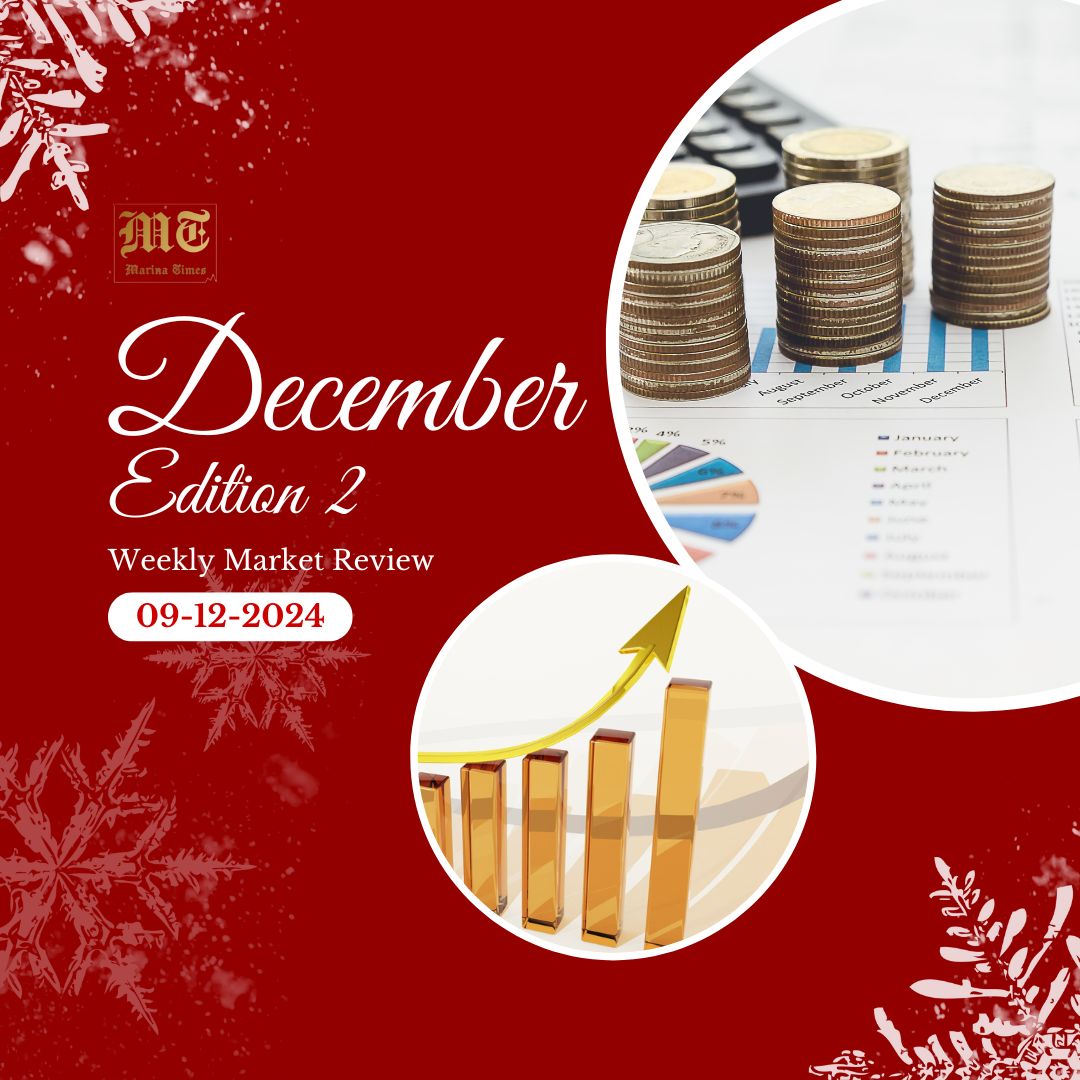

Last week, Nigeria conducted a successful Eurobond auction, the first issuance since 2022, and it was a revelation of overwhelming investor confidence in the country’s macroeconomic policies. The auction received a total subscription above $9 billion, significantly exceeding the $2.2 billion issued. Analysts believe this strong demand reflected support from a broad array of investors, including fund managers, players in insurance, pension funds, banks, and other financial institutions.
Recall, we reported last week about the launch of the Central Bank of Nigeria (CBN) Electronic Foreign Exchange Matching System (EFEMS), which is a move to address forex market distortions and enhance transparency while dealing with the country’s acute forex crisis which has further strained the availability of Dollars in the market. The Naira’s volatility in the forex market eased tremendously as the parallel market rate dropped below N1,700 for the first time in awhile. The Naira appreciated as the interbank market saw improved liquidity, with transactions occurring between N1,525 and N1,655.
During the week under review, to address excess liquidity, an OMO was conducted on Friday. At the NAFEM Window, the exchange rate traded as low as $/N1,480 with a decrease of at the end of the week.
Nigeria Raises $2.2 Billion in Eurobonds, Demonstrating Strong Investor Confidence
Nigeria raised $2.2 billion through its Eurobond auction last week, offering two bonds with different maturities. The 6.5-year bond, priced at 9.625%, raised $700 million, while the 10-year bond, with a higher yield of 10.375%, accounted for the larger portion of $1.5 billion. Despite the relatively high yields, the overwhelming demand for the bonds indicates strong investor interest in Nigerian debt, although concerns remain about the country’s financial stability.
The yield from the 10-year bond reflects investors’ demand for a risk premium due to concerns about Nigeria’s economic outlook and creditworthiness. The significantly higher yields have prompted discussions about the sustainability of the country’s debt, with some investors expressing surprise at the timing of the issuance given the high rates.
Reportedly, the Eurobonds were issued under the Regulation S/144A structure and will be listed on the official list of the UK Listing Authority and made available for trading on the London Stock Exchange’s regulated market, FMDQ Securities Exchange Limited, and the Nigerian Exchange Limited. The proceeds from this issuance will primarily be used to finance Nigeria’s 2024 fiscal deficit and meet other budgetary requirements.
Mr. Olawale Edun, the Minister of Finance and Coordinating Minister of the Economy, described the auction’s success as a sign of growing confidence in the Nigerian government’s efforts to stabilise the economy. In the same vein, the Central Bank Governor, Mr. Olayemi Cardoso, commented on the successful issuance, stating that it demonstrated the resilience of Nigerian credit and reflected the country’s improved liquidity and continued access to international markets for financing.
DMO Issues ₦756.7 Billion in December Treasury Bills Auction
At the conclusion of the first Treasury Bills (T-Bills) auction for December, held last Wednesday, the Debt Management Office (DMO) successfully allotted ₦756.7 billion in T-Bills, significantly surpassing the ₦583.3 billion on offer. Subscription levels reached as high as ₦2.5 trillion across all tenors, with 364-day accounting for 99% of the total subscription, indicating strong demand for this bill.
While the allotment exceeded the initial offer, there was a slight reduction of over ₦5.5 billion for the 91-day tenor, while the 182-day tenor saw an increase of around ₦1 billion. The 364-day tenor, however, experienced a notable excess allotment of nearly ₦200 billion.
In terms of stop rates, the 91-day and 182-day tenors maintained their previous levels at 18.0000% and 18.5000%, respectively. The 364-day tenor, however, saw a significant decrease of 57 basis points, dropping from 23.5000% to 22.9300%—a notable shift following a 50 basis point increase in the previous auction.
AUCTION DATE | 04-12-2024 | 04-12-2024 | 04-12-2024 |
ALLOTMENT DATE | 05-12-2024 | 05-12-2024 | 05-12-2024 |
MATURITY DATE | 06-03-2025 | 05-06-2025 | 04-12-2025 |
TENOR | 91-DAY | 182-DAY | 364-DAY |
OFFER (₦) | 7,860,385,000 | 12,274,358,000 | 563,121,453,000 |
SUBSCRIPTION (₦) | 2,916,009,000 | 17,345,122,000 | 2,526,559,195,000 |
ALLOTMENT (₦) | 2,305,009,000 | 13,245,542,000 | 741,150,200,000 |
STOP RATES (%) | 18.0000 | 18.5000 | 22.9300 |
PREVIOUS STOP RATES (%) | 18.0000 | 18.5000 | 23.5000 |
Some market analysts speculate that the DMO may be attempting to lower rates before the year ends to optimise borrowing costs and manage the country’s fiscal position as it prepares for the upcoming year. The decision to decrease rates on the 364-day tenor may suggest a strategic move to stabilise the market and create a more favourable environment for debt issuance.
In other news, the Debt Management Office (DMO) announced the availability of two Federal Government of Nigeria (FGN) savings bonds for subscription in December. The first offer is a two-year FGN savings bond maturing on December 11, 2026, with an annual interest rate of 17.483%. The second bond on offer is a three-year FGN savings bond maturing on December 11, 2027, with an annual interest rate of 18.483%. The bonds were available for subscription between December 2 and December 6, with a settlement date on December 11. Coupon payments will be made quarterly in 2025, on March 11, June 11, September 11, and December 11.
TENOR | INTEREST RATE | MATURITY |
2-YEAR | 17.483% | 11-12-2026 |
3-YEAR | 18.483% | 11-12-2027 |
The bonds are priced at ₦1,000 per unit, with a minimum subscription of ₦5,000 and subsequent subscriptions in multiples of ₦1,000, up to a maximum of ₦50 million. Interest will be paid quarterly, with the principal amount due for repayment on the maturity date.
At the end of the week, an OMO auction took place, marking the first in a month. The auction saw a total subscription exceeding ₦2 trillion, all for the 361-day tenor, reflecting a bid-to-offer ratio of over 400%. There was no interest in the shorter and medium tenors.
Prior to the auction, liquidity was in surplus, amounting to just over ₦600 billion. Analysts suggest that the auction was aimed to absorb excess liquidity from the system. In contrast to recent OMO auctions that consistently closed around 24%, this auction saw a modest decline of just 2 basis points—closing at 23.98%.
TENOR | AUCTION DATE | OFFER (₦’ B) | BIDS (₦’ B) | RANGE OF BIDS (%) | STOP RATES (%) | PREVIOUS STOP RATES (%) | TOTAL SALE (₦’ B) |
88-DAY | 06-12-2024 | 25.00 | NIL | NIL | NIL | NIL | NIL |
186-DAY | 06-12-2024 | 25.00 | NIL | NIL | NIL | NIL | NIL |
361-DAY | 06-12-2024 | 450.00 | 2,243.99 | 23.4700 – 24.2800 | 23.9800 | 24.2800 | 772.93 |
Sequel to the launch of the Electronic Foreign Exchange Matching System (EFEMS) by the Central Bank of Nigeria (CBN), a move designed to enhance transparency and efficiency within the nation’s forex market, the system will provide real-time data on all foreign exchange transactions conducted in the interbank market and approved by the CBN. In addition, the EFEMS will publish live prices with the two-way quote, enabling market participants to access more precise and timely information.
With the introduction of EFEMS, the CBN aims to curb speculative activities and promote a more stable forex environment. The EFEMS is intended to reduce the volatility often experienced in the market and support greater market discipline. The CBN will also work alongside the Financial Markets Dealers Association (FMDA) to establish rules of engagement for authorised dealers and buyers. Likewise, the Nigerian FX Code and revised operating guidelines will provide further clarity and guidance for market participants, ensuring a more regulated and transparent market.
The launch of EFEMS comes as part of broader efforts to improve the stability of the Nigerian currency. Following the implementation of the Bloomberg BMatch system, which allows authorised currency dealers to engage in more streamlined transactions, the Naira saw an appreciation against the US Dollar. While the exchange rate remained relatively stable within Nigeria’s autonomous forex market, the transition to this electronic platform marks a significant shift in how the Naira’s exchange rate is viewed, potentially reshaping market dynamics and perceptions moving forward.
As we approach the December bond auction, the market sentiment is generally mixed as stakeholders are torn between excess liquidity conditions as the year ends and broader macro considerations including but not limited to inflation, DMO’s borrowing plan for 2025 and its disposition to exorbitant cost of future borrowings. Consistent with our humble prediction in the last edition, we expect short dated yields to be under severe upward pressure as CBN moves to keep the Naira attractive to reinforce Naira gains. The mid to long end of the curve may stay flat into the new year depending on forward guidance from the DMO. We expect the equity markets to be relatively bearish as the profit taking should take precedence. The Naira will close the year stronger based on all parameters currently in place further to CBN’s efforts.
In global terms, we expect extreme caution in US equity and cryptocurrency markets as inflation numbers are to be released this week which may dictate the extent of further loosening if any at the Federal Open Market Committee, (FOMC) December meeting. Based on the notion that both equities and cryptocurrencies are currently trading bubble cycles, there is a propensity for downward correction in the coming days. Oil prices are likely to continue their downward range-bound trajectory into President Trump’s inauguration.